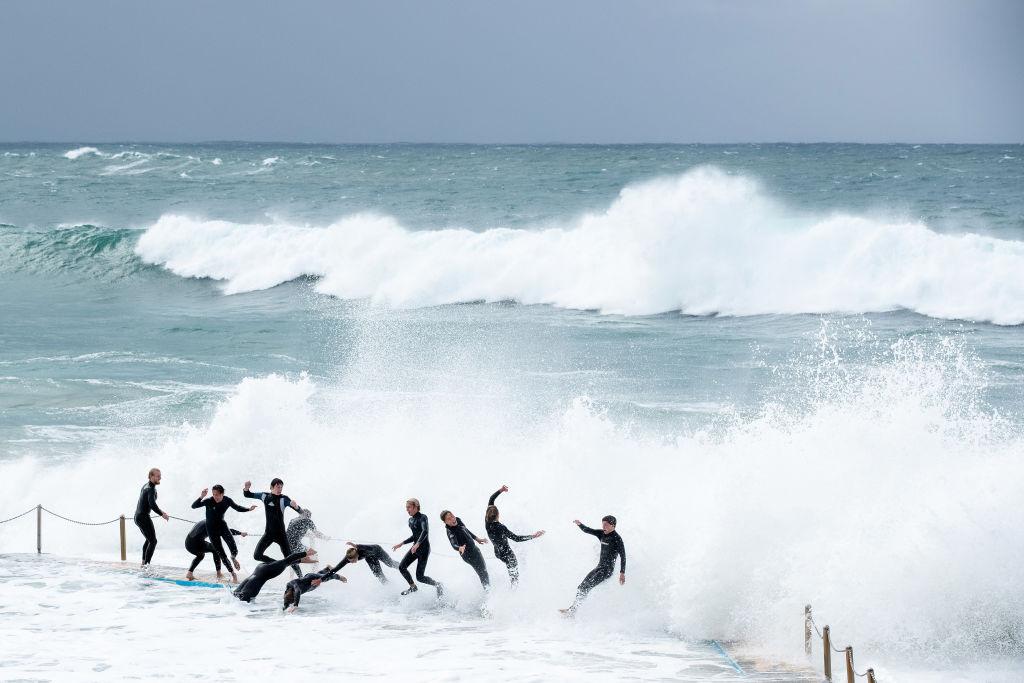
While there is a diversity of views on Victoria’s Belt and Road Initiative agreement with Beijing, there seems to be universal agreement on a solution: the federal government should simply assert its constitutional prerogative and regain full control of the nation’s foreign policy. That horse has, however, long since bolted.
In the first half of the 20th century, Australia’s diplomacy was conducted out of the prime minister’s office. In the second half of the century, the RG Casey building and the Department of External Affairs (now the Department of Foreign Affairs and Trade) became involved. In the 21st century, Australia’s diplomacy is shaped by every state capital in the country.
Over the last few decades, state governments have set up dozens of offices overseas to advance their interests. These outposts criss-cross the globe, and states may have several in big countries such as the United States. Defence industry is the hot ticket at the moment, but agriculture, entertainment and sport, and even encouraging state-specific immigration, have been key tasks.
These state offices like to pledge that they are part of ‘Team Australia’, but the reality of their diverging interests means that at least some of the time national interests come second. That situation arises either because of the nature of the deals done—competing against each other to drive the price down—or because of the pressure state politicians are under back home to maintain good relations with potential buyers.
There are regular trade missions overseas led by the state premiers—that often send mixed messages about national relations—and every state and territory has a defence strategy (for inviting industry in, rather than keeping threats out).
Competition for defence contracts has seen Queensland feuding with Western Australia, Western Australia feuding with South Australia, and Queensland feuding with the federal government. As one senior defence industry official told a parliamentary inquiry in 2018, ‘Few could deny that the level of rivalry between the states for defence work has become almost hysterical, if not destructive.’
It gets worse. In June 2018, WA Premier Mark McGowan attacked Foreign Minister (and West Australian) Julie Bishop for her ‘strange’ and ‘frankly bizarre’ approach to China, an attack he returned to against federal Liberal MP Andrew Hastie (also a West Australian) in September 2019.
There was funding from China to influence NSW education programs, and, back in 2017, Victoria’s opposition leader Matthew Guy declared that his party supported US President Donald Trump over the Australian government in the location of our embassy in Israel.
Victoria’s BRI agreement, which has caused a dispute with the federal government, is thus notable for its content and choice of partner, but not for the fact that a state government is directly influencing Australia’s engagement with the world. It is instead only the most visible case of a substantial evolution in Australian diplomacy that has taken place this century. I’ve spent the past few years researching this change but feel like I’m only just beginning to get a sense of its scope.
If this phenomenon is much more widespread than people presume, then our attempts to solve the problem (to the extent it is a problem) also need to evolve. Simply invoking section 51 of the constitution to shut down all state government international engagement won’t cut it. Doing so would jeopardise hundreds of valuable agreements and bring an end to a very useful supplement to our global posture given the historic and regrettable systemic underfunding of DFAT.
Top-down solutions are unlikely to be the answer because of the size, scope and speed of this cooperation. As one official told me, the federal government isn’t even made aware of most of the activity state governments undertake overseas. Forcing every agreement or interaction to be pre-approved would be incredibly laborious and slow.
It’s not clear what would qualify as needing review, given that states often work to connect with and engage private companies or cooperate with other state-level governments (such as California’s relations with Victoria on disaster management). Even local councils can cause a ruckus with seemingly harmless interactions.
Instead, what’s required is far more national discussion about how Australia as a single nation should view the world. Rather than trying for ever tighter control of foreign policy in Canberra, it needs to be accepted that every state and territory, and possibly every major business and non-government organisation in the country, can and will influence how we engage with the world. For better and for worse.
The way to ensure that the right kinds of behaviour occur without direct control is to have a clearer sense of who we are as a nation, what we want from the world, and what values we will and will not accept. Foreign affairs and defence policy can no longer be an elite conversation—because it’s no longer an elite practice. The state of Australia’s foreign policy has changed. Our conversation needs to change with it.